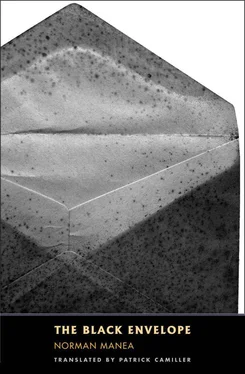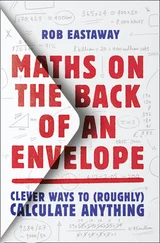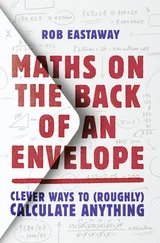The chandelier in the middle has vanished, into the darkness. The homely corner is lit only by the white lamp globe, like a spotlight beamed onto the white tablecloth. Silver cutlery, napkins, large glasses, small glasses, with their thinned-down crystal sound, small large deep plates — it seems as though Tolea, too, is eating.
From time to time the plates are changed and new courses served. Vasile picks up the napkin that has fallen by the chair. Tolea straightens his back; Vasile lays the napkin over his knees. Five, ten minutes, an eternity, the year 1000. Tolea does seem, however, to have bolted something down. Again Vasile bends and picks up the napkin: he shakes it and opens it out. Mr. Dominic sits up straight and the napkin reappears on his knees. Somewhere there is a ripple of music. The napkin falls and is replaced. The soup bowl disappears and a steak appears — or maybe it wasn’t steak, or maybe the steak wasn’t up to much. Another dish appears, the white napkin reappears.
Tolea is not speaking: he doesn’t drink and he holds his tongue. He seems not to hear the doctor’s habitual stories, not to be there at all. Even when he finally resumes the conversation, he seems to be absent.
“So, it was moussaka after all. That old dog Bazil! He put tomato juice in it, but it isn’t bad. The numbskull can even do that, then.”
“Vasile cooks superbly. But Jeny doesn’t let him. You should see how he irons clothes. Quite extraordinary — like an Englishwoman at the queen’s court. And when he cooks, it comes out perfect. But with him it doesn’t have the same therapeutic effect as it does with Jeny. Although it does do him good, I’m sure. I told you, housework keeps them occupied: it calms them down.”
“Not to mention the tips, of course.”
Mr. Dominic raised his glass of red wine. He brought it to his lips, but then changed his mind. “I’m on holiday. I don’t know if you know. I’ve got a short holiday which could become long.”
“You told me on the phone. You’ve been away, too, no?”
“I soon came back. You can’t find anywhere proper anymore. Dirt, pathetic food that’s unavailable and expensive. Lines wherever you go. No light in the streets and no heating indoors. And patrols everywhere — armed patrols, like when, you know … So I came back to enjoy myself at home. At least it’s cheaper — searching for that photographer who’s not a real photographer. Maybe you could give me his address; I can’t find him. You mentioned him to me once, but probably you regretted that you’d shot your mouth off. You regretted it and you haven’t wanted to talk about it since. You knew I wouldn’t be able to find him.”
“It’s come over you again, has it? Back to all that nonsense after two or three years? You’re bored, I know. That’s what’s wrong with you: boredom. But what do you want, for God’s sake? To see those fossils again? Nothingness — that’s what they are now. Ashes, earth, holes in the ground. And those who survived have got one foot there, in paradise. Look at me.”
Old Marga laughed, they both laughed. Tolea motioned behind him, in the direction of the trolley. “Read the letter. You’ll see it’s not just a question of boredom and distraction, although they shouldn’t be ignored by any means. Look at this last letter. I knew he’d get around to it, because sooner or later the memories would overwhelm him: he’d want them to be warmed up, fresh, with salt, with poison, with all the spices of the death that the paralytic is courting these days. So he pays me in convertible currency, Doctor! That’s how I’m on holiday. Paid. The alms he sent me a year ago were actually an advance. I could sense he had something up his sleeve.”
The doctor stood up, put his napkin beside the plate, gave the patient a smile, blew out some smoke, paced a few steps up and down with his hands behind his back. Then he walked up to the little table, where he could see the ball of paper and the envelope on the floor — looking, not looking.
“Don’t exaggerate: he’s been sending you money for years, since he found out about the trial. Or anyway, since he found out you’ve got problems. Otherwise you wouldn’t be able to manage. Not a lot, of course, but it adds up over all those years. And you never answered him, did you, Tolea? You never thanked him, never wrote a line. So … unless it’s another one of your tricks, you can give him a promise. It might even do you good. You’ll have something to take your mind off everyday worries.”
“What music, Doctor! What cassettes!”
“Well, after all, it’s your sister-in-law’s letter; you can’t tell who thought it up. And then if it doesn’t suit you, you can just not answer, as you’ve always done. Even if the sum is incomparably bigger this time, there isn’t necessarily a connection between money and what the sick person is asking for. It could be more like a suggestion, you know; he may not actually be putting any demands on you.”
“Who gave you this wonderful tape, sir? It’s really something else!”
“Coco, my colleague in surgery, brought it back from a trip to Cuba.”
“Cuba? What are you talking about? That is a fantastic tape. Music from the year 3000, old man, the fourth millennium. Death on a cassette tape.”
“Sure, Coco knows what’s what. And the Cubans have got some fine music, too. Death is everywhere, you know, like music.”
“Look, it’s stopped. Play the other side, will you?”
“I’d say you should accept the challenge — whether or not it’s true that Mircea Claudiu suggested it to you. Accept it — but don’t count on me. Maybe they’re also exiles over there, sick at heart, you know how it is. But anyway, you’ve got nothing to lose in the end. If it amuses you, go ahead; any distraction is a good idea. There’s no way I can help you, though. Let’s be clear about that. Try Gafton: he knows a lot of stories, and he’s just waiting for someone to listen. He’s also worked on the newspapers and has some connections— which you don’t exactly.”
“Yes, I do!” growled Mr. Tolea, who was arranging the new tapes and staring at the red eye on the panel of the cassette player. Then time became confused: the doctor had evaporated at some point, the music was on its last legs, there were fewer and fewer lights, the clock had struck, again and again, with no one to hear … You see, Mr. Bazil, we’ve got business to attend to. Tonight … Mr. Tolea whispers in Vasile’s ear, in two or nine hours or so, when they wake up next to each other on the carpet, looking closely at each other and nodding like two old men, now one now the other, as if continuing a conversation from times of old.
Friend Vasile keeps quiet and looks. Submissive, patient with everyone.
“We patients have arranged to meet there at the outfall — near that miserable little village. Some twenty kilometers away, where the sewer empties into the river. They’re all coming tonight, you’ll see …
“I’m not sick anymore, Mr. Tolea. That’s what the doctor says: I’m not sick anymore. You’re healthier than lots of people, he says. You’re healthier than me, Vasile, that’s what he says. Dr. Marga says so.”
“That’s right. You can believe it, too.”
“Yes, my kidneys and my eyes and my heart. Especially my heart, because poor Dr. Marga’s heart is not too …”
“You feed him too much in the evening: he’ll croak from it one of these days.”
“Only when you come, sir. But it’ll end badly. You don’t know how to drink, Mr. Tolea: these are strong drinks. Even though I’m healthy myself, I wouldn’t have the courage to …”
“How’s that, Vasile? After all, you’re healthy — not like the doctor.”
“Yes, I am. And d’you know what the doctor said? He said: If only the comrade were as healthy as you are — you know who he meant! Comrade Jabber-Jabber, Dr. Marga calls him.”
Читать дальше












